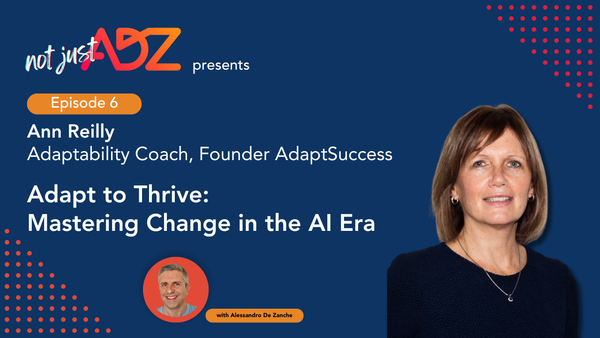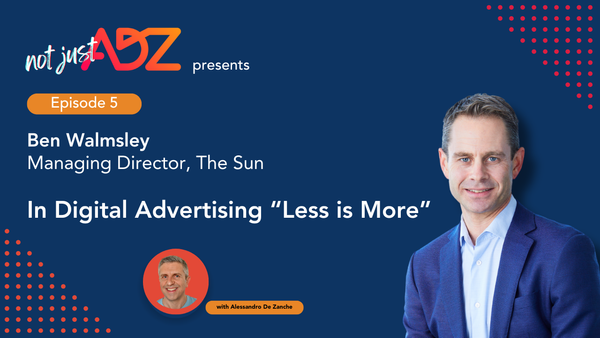Media Owners Need A New And Powerful Narrative To Attract Ad Spend | AdExchanger
Remember all the times that media owners complained about how the majority of advertisers’ budgets end up in the pockets of Google and…

Remember all the times that media owners complained about how the majority of advertisers’ budgets end up in the pockets of Google and Facebook?
Today a growing number of global and local advertisers are joining the “Stop Hate for Profit” campaign, boycotting Facebook and other social media networks and demanding stricter hate speech policies.
One would think that media owners would feel vindicated and use the controversy to articulate why those budgets would be more wisely spent on quality media. This would be the perfect opportunity to offer advertisers an alternative to the social networks’ quicksand and their (real) brand safety issues.
Instead, media owners have been busy limiting the damages of keyword blocking in the programmatic open marketplace, which has condemned many of them to near irrelevance, stuck among legions of less reputable sites. That programmatic open marketplace is plagued by almost equivalent issues to those suffered by Facebook and social media in general.
The industry finds itself in a catch-22 situation, in which there is a lack of scaled viable alternatives to social media and the programmatic open marketplace. This means that the best advertisers can do is to move their ad spend from hate speech and fake news on Facebook to the murkiness and problems of the open marketplace.
Now is the time for media owners to stand up and highlight their vision and value proposition. Their pitch must be different than those in the past, which have evidently not worked for them or their advertisers, let alone their audiences.
Digital advertising desperately needs quality media environments as an organic and consistent alternative to the status quo, rather than isolated hidden gems here and there, but the initiative can only come from media owners as a category. They also face opposition from certain corners of ad tech more interested in keeping quality media in the programmatic open marketplace, which would otherwise turn into an environment of silly polls and poor quality content (“Learn a language in one week,” “Peel your potato in 10 seconds,” etc.). And then they’ll really argue about brand safety.
Media owners should sharpen their narrative, play on their strengths and position themselves as the preferred choice for branding strategies as opposed to direct response, a field where they are and will continue to be crushed by Google and Facebook, with or without boycotting.
By failing to plug into the “Stop Hate for Profit” initiative they are missing one more train. Nobody is suggesting that media owners can replace Facebook, but even diverting just a lower single-digit investment would make a huge difference and represent a solid first step, creating momentum.
I don’t think it is pessimistic to state that it is already too late for many: It is a strategic approach that requires preparation and time and cannot be reactively improvised. The question is whether media owners can afford to miss many more opportunities.
What next, then? Media owners are looking at their monetization along two main lines that are still too independent from each other: subscriptions and advertising. While subscription strategies are maturing and evolving, many in the advertising side of their businesses struggle with the consistent decline in ad revenues (despite increases in overall ad spend) and the growing technical and regulatory constraints.
Trends show a higher dedication toward privacy, maximizing the value of first-party data and achieving identity resolution. All the above are means to an end, but what is the strategic positioning of media owners as a category? How are quality media brands differentiating themselves in the current babel of the digital advertising ecosystem? What is their story? What is the narrative they have developed to promote themselves as a category and platform?
Despite the decline in their ad revenues having started over 10 years ago, it feels as if media owners are still shell-shocked and, perhaps subconsciously, think that their leading role in digital advertising has somehow been taken away from them.
The reality is that in today’s world they have become, for their size and characteristics, almost a niche within the ecosystem. They are high-quality and, if you ask me, have enormous potential in a reinvented digital advertising industry, but still a niche.
Overall, the bottom line is clear: Quality content, first-party data and identity are valuable elements that differentiate media owners. What they also desperately need is a clear, strong and inspirational narrative to tell advertisers who they are, what they stand for and how they can connect them with their audiences in a unique way.
It’s only by “thinking like a niche” that they can turn the fate of their ad revenues around. Trying to please everybody like it is the 1990s is useless and counterproductive.
Originally published at https://www.adexchanger.com on July 10, 2020.





